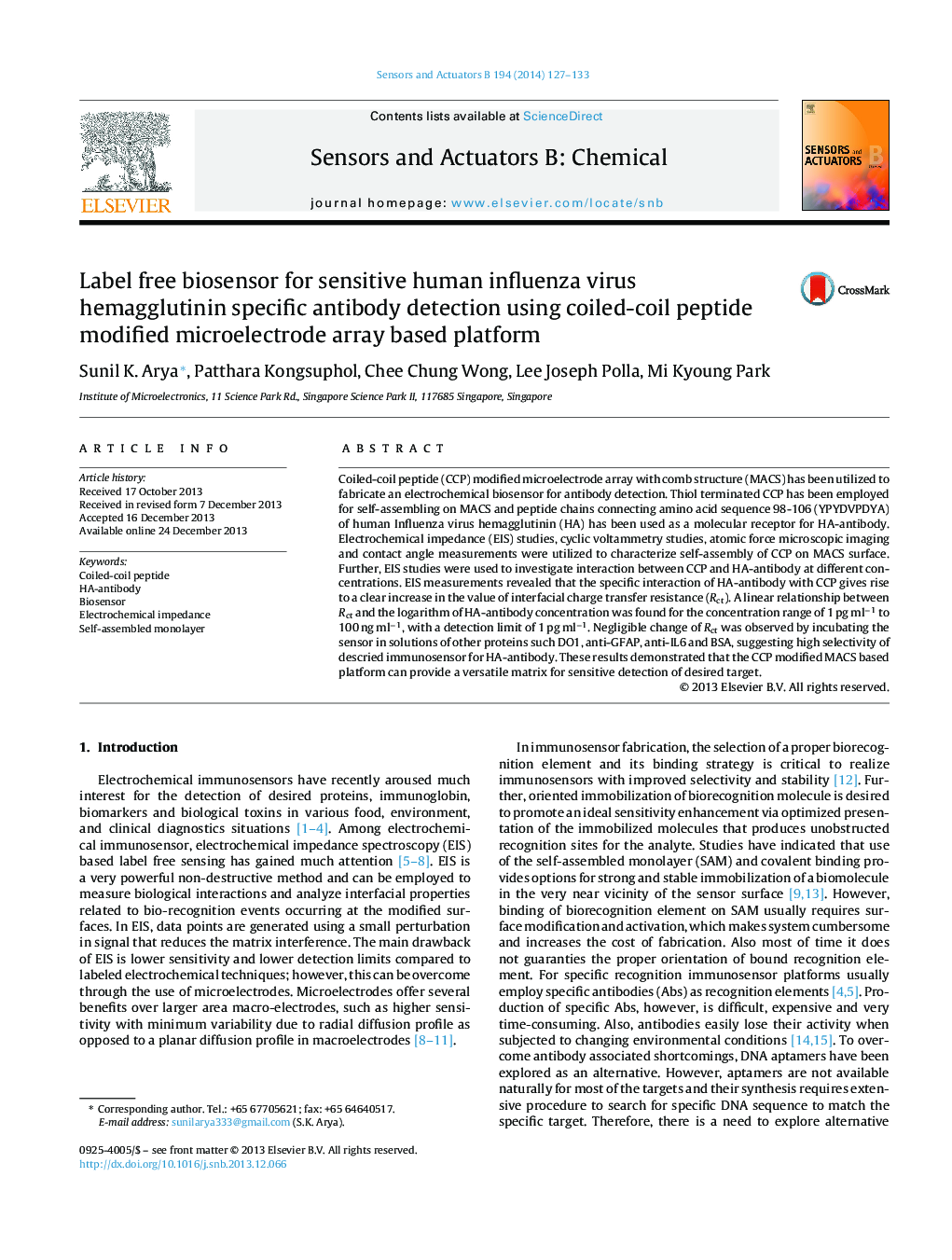| Article ID | Journal | Published Year | Pages | File Type |
|---|---|---|---|---|
| 742863 | Sensors and Actuators B: Chemical | 2014 | 7 Pages |
Coiled-coil peptide (CCP) modified microelectrode array with comb structure (MACS) has been utilized to fabricate an electrochemical biosensor for antibody detection. Thiol terminated CCP has been employed for self-assembling on MACS and peptide chains connecting amino acid sequence 98-106 (YPYDVPDYA) of human Influenza virus hemagglutinin (HA) has been used as a molecular receptor for HA-antibody. Electrochemical impedance (EIS) studies, cyclic voltammetry studies, atomic force microscopic imaging and contact angle measurements were utilized to characterize self-assembly of CCP on MACS surface. Further, EIS studies were used to investigate interaction between CCP and HA-antibody at different concentrations. EIS measurements revealed that the specific interaction of HA-antibody with CCP gives rise to a clear increase in the value of interfacial charge transfer resistance (Rct). A linear relationship between Rct and the logarithm of HA-antibody concentration was found for the concentration range of 1 pg ml−1 to 100 ng ml−1, with a detection limit of 1 pg ml−1. Negligible change of Rct was observed by incubating the sensor in solutions of other proteins such DO1, anti-GFAP, anti-IL6 and BSA, suggesting high selectivity of descried immunosensor for HA-antibody. These results demonstrated that the CCP modified MACS based platform can provide a versatile matrix for sensitive detection of desired target.
